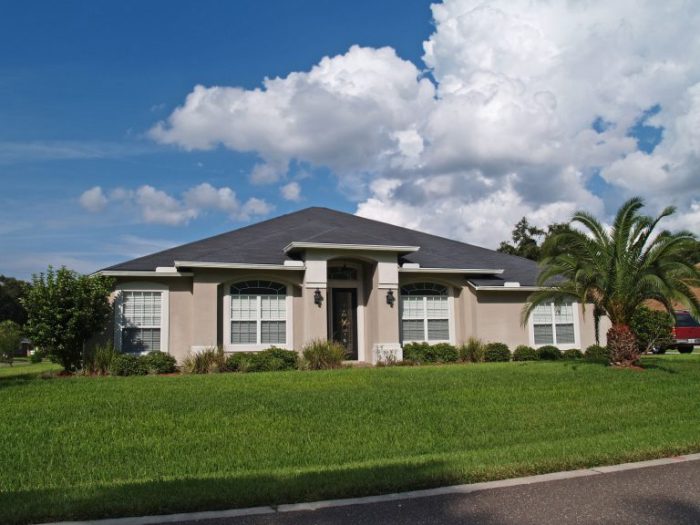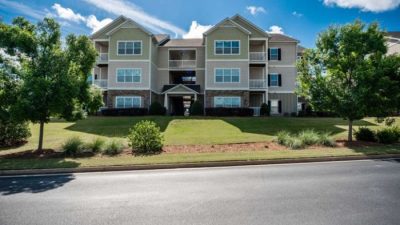Understanding the “Housing for Rent by Owner” Market
The “housing for rent by owner” (RBO) market represents a significant segment of the rental housing landscape. It offers renters direct interaction with property owners, bypassing property management companies. This section will explore the characteristics of this market, highlighting its advantages and disadvantages for both renters and owners.
Typical Renter Profile Seeking Housing from Individual Owners
Renters choosing RBO properties often seek personalized service, potentially lower rental costs, and a more direct line of communication with the landlord. They may prioritize flexibility or a specific property feature not readily available through larger management companies. These renters may also be comfortable handling property maintenance issues more directly.
Advantages and Disadvantages of RBO for Renters
Choosing to rent from an individual owner presents a unique set of advantages and disadvantages. Understanding these aspects is crucial for making an informed decision.
| Advantages | Disadvantages |
|---|---|
| Potentially lower rental costs due to the absence of management fees. | Less professional management and potentially slower response times to maintenance requests. |
| More direct communication and personalized service from the owner. | Greater responsibility for property maintenance and repairs, depending on the lease agreement. |
| Greater flexibility in lease terms, potentially. | Increased risk of encountering unprofessional or unreliable landlords. |
Comparison of RBO and Property Management Companies

Source: rocketcdn.me
RBO and property management companies offer distinct approaches to rental housing. The key differences lie in management style, cost, and renter-landlord interaction. Property management companies typically offer more standardized processes, but this often comes at a higher cost reflected in rent.
The increasing popularity of housing for rent by owner (FRBO) offers a diverse range of options for renters, often bypassing traditional real estate agencies. A significant market for FRBO properties exists in major cities like San Antonio, where finding suitable housing can be competitive; a comprehensive search for available properties can be initiated via this resource: houses for rent in san antonio.
Understanding the advantages and disadvantages of FRBO arrangements remains crucial for both landlords and tenants navigating the San Antonio rental market.
| Feature | RBO | Property Management Company |
|---|---|---|
| Rent Collection | Direct from tenant to owner | Managed by the company |
| Maintenance | Often handled by the owner or tenant | Handled by the company or contracted professionals |
| Lease Agreements | More variable, potentially less standardized | Standardized, legally reviewed agreements |
Examples of Common Rental Agreements, Housing for rent by owner
Various rental agreements exist in the RBO market. These can range from simple month-to-month agreements to longer-term leases with detailed clauses. It’s crucial for both renters and owners to understand the terms clearly.
| Agreement Type | Lease Duration | Rent Adjustment | Security Deposit |
|---|---|---|---|
| Month-to-Month | Month-to-month | Variable, often monthly | Usually one month’s rent |
| One-Year Lease | 12 months | Fixed for the lease term | Usually one or two months’ rent |
| Two-Year Lease | 24 months | Fixed for the lease term, with potential annual increases | Usually one or two months’ rent |
Pricing Strategies for Owners
Setting the right rental price is crucial for attracting tenants and maximizing rental income. This involves careful consideration of market factors, property features, and potential seasonal fluctuations.
Influence of Market Value, Property Features, and Location on Rental Pricing
Rental prices are influenced by a complex interplay of factors. Market value reflects the prevailing rental rates for comparable properties in the area. Property features such as size, amenities, and condition directly impact pricing. Location plays a significant role, with desirable areas commanding higher rents.
Different Pricing Models Used by Individual Owners
Individual owners employ various pricing models. Market rate pricing aligns with the average rental price for comparable properties. Below-market rate pricing aims for faster occupancy, while premium pricing reflects superior property features or a highly desirable location.
Impact of Seasonal Demand on Rental Pricing
Seasonal variations in demand can influence rental prices. For example, college towns might see higher rents during the academic year. Areas popular with tourists might have higher prices during peak seasons.
Conducting a Comparative Market Analysis
A comparative market analysis (CMA) involves researching similar rental properties in the area to determine a competitive price. This involves examining recently rented properties, their features, and their rental rates. Online real estate portals and local market data are valuable resources for this analysis.
Marketing and Advertising “Housing for Rent by Owner” Listings
Effective marketing is crucial for attracting qualified tenants. This section Artikels a sample marketing plan and explores various advertising channels.
Sample Marketing Plan for an Individual Owner
A successful marketing plan includes a clear target audience definition, strategic channel selection, and compelling property presentation. It should highlight the property’s unique selling points and address potential renter concerns.
- Target Audience: Define ideal tenants (e.g., families, young professionals).
- Marketing Channels: Utilize online and offline channels (detailed below).
- Property Presentation: Showcase high-quality photos and a detailed description.
- Pricing Strategy: Determine a competitive rental price using a CMA.
- Tenant Screening: Implement a robust screening process.
Effective Online and Offline Advertising Channels
Reaching potential renters requires a multi-faceted approach leveraging both online and offline channels. The effectiveness of each channel varies depending on the target audience and location.
- Online: Craigslist, Zillow, Facebook Marketplace, dedicated rental websites.
- Offline: Local newspapers, community bulletin boards, “For Rent” signs.
Importance of High-Quality Photographs and Detailed Property Descriptions

Source: housesbylouise.com
High-quality photographs and detailed property descriptions are crucial for attracting renters. Professional-looking photos showcase the property’s best features, while a comprehensive description provides all necessary information.
Comparison of Advertising Platform Effectiveness
- Zillow/Trulia: Wide reach, but competition is high.
- Craigslist: Large audience, but requires more effort to manage listings.
- Facebook Marketplace: Targeted advertising options, good for local reach.
- Local Newspapers: Limited reach, but can be effective in smaller communities.
Legal and Financial Aspects
Understanding legal and financial aspects is crucial for responsible property ownership. This section addresses common risks, tenant screening, rent collection, and relevant laws.
Common Legal Risks for Individual Owners
Individual owners face various legal risks, including tenant disputes, fair housing violations, and liability for property damage.
- Tenant Disputes: Disagreements over lease terms, repairs, or evictions.
- Fair Housing Violations: Discriminating against potential tenants based on protected characteristics.
- Liability for Property Damage: Responsibility for injuries or damage occurring on the property.
Importance of Tenant Screening and Background Checks
Thorough tenant screening and background checks are essential to mitigate risks. This involves verifying income, credit history, and rental history to ensure tenants’ reliability.
Collecting Rent and Handling Late Payments
Establishing a clear rent collection process is important. This includes setting payment deadlines, accepting various payment methods, and having a strategy for handling late payments.
Implications of Relevant Landlord-Tenant Laws
Landlord-tenant laws vary by region. Understanding these laws is crucial for compliance and avoiding legal issues. These laws cover topics such as lease agreements, evictions, and tenant rights.
Managing Tenant Relationships: Housing For Rent By Owner
Maintaining positive relationships with tenants is essential for a smooth rental experience. This section addresses communication strategies, complaint handling, and lease violations.
Effective Communication Strategies
Open and timely communication is key to positive tenant relationships. This includes promptly responding to inquiries, providing updates on maintenance issues, and addressing concerns.
Best Practices for Handling Tenant Complaints and Maintenance Requests
Establishing a clear process for handling complaints and maintenance requests is crucial. This includes acknowledging requests promptly, providing timely responses, and documenting all interactions.
Common Lease Violations and Appropriate Responses
Understanding common lease violations and appropriate responses is vital. This includes addressing issues such as late rent payments, property damage, and unauthorized occupants.
Creating a Clear and Concise Tenant Handbook
A tenant handbook provides clear guidelines on property rules, responsibilities, and procedures. This ensures both the owner and the tenant understand their expectations and responsibilities.
Property Maintenance and Repairs
Responsible property maintenance is crucial for tenant satisfaction and preserving property value. This section addresses owner responsibilities, common issues, budgeting, and working with contractors.
The market for housing for rent by owner offers diverse options, catering to a wide range of preferences and budgets. A popular choice within this sector is the demand for a 2 bedroom house for rent near me , reflecting the prevalent need for comfortable and affordable family housing. Consequently, understanding the nuances of this specific segment within the broader rental market by owner is crucial for both landlords and tenants seeking suitable accommodations.
Responsibilities of an Owner Regarding Property Maintenance and Repairs
Owners are generally responsible for maintaining the property’s habitability, addressing necessary repairs, and ensuring safety. The specific responsibilities are often Artikeld in the lease agreement.
Common Maintenance Issues and Their Solutions
Rental properties experience various maintenance issues, including plumbing problems, appliance malfunctions, and pest infestations. Having a plan for addressing these issues promptly is crucial.
Creating a Budget for Property Maintenance and Repairs
Budgeting for maintenance and repairs is essential for responsible property ownership. This involves estimating costs for routine maintenance and setting aside funds for unexpected repairs.
Selecting and Working with Reliable Contractors or Handymen
Choosing reliable contractors or handymen is crucial for ensuring quality work and avoiding potential problems. This involves checking references, obtaining quotes, and establishing clear communication.
Illustrative Examples of Successful Strategies
This section provides illustrative examples of successful strategies used by individual owners.
Successful Strategy to Attract High-Quality Tenants and Maintain Positive Rental Income
One successful strategy involves offering a well-maintained property with desirable features, competitive pricing, and a thorough tenant screening process. Excellent communication and responsiveness to tenant needs further enhance tenant satisfaction and retention.
Features of a Rental Property That Commands a Premium Rental Price
A premium rental property typically features desirable amenities, modern updates, a prime location, and high aesthetic appeal. For example, a spacious apartment in a safe neighborhood with updated appliances, hardwood floors, and a private balcony could command a premium price.
Effective Resolution of a Conflict with a Tenant
Effective conflict resolution involves open communication, active listening, and a willingness to find mutually agreeable solutions. For example, a landlord might address a tenant complaint about a malfunctioning appliance by promptly arranging for repairs and keeping the tenant informed throughout the process.
Detailed FAQs
What’s the best way to find reliable tenants?
Thorough tenant screening is key! Check credit reports, verify employment and income, and conduct background checks. Don’t be afraid to ask questions during interviews – you want someone who’s a good fit for your property and your personality.
How do I handle a tenant who consistently pays rent late?
Enforce the terms of your lease agreement promptly. Send friendly reminders, then escalate to formal written notices. Consult your local landlord-tenant laws for guidance on eviction procedures. Be prepared to be patient but firm.
What are my responsibilities regarding property repairs?
Your responsibilities vary depending on your lease and local laws, but generally, you’re responsible for repairs related to the structure of the property (roof, plumbing, etc.), while the tenant is typically responsible for minor repairs and damage they cause.
Can I raise the rent during a lease term?
Generally, no, unless your lease explicitly allows for rent increases or there are specific circumstances Artikeld in your local laws (e.g., significant property improvements).
How much should I charge for rent?
Research comparable properties in your area to determine a competitive market rate. Consider property features, location, and current market conditions. A comparative market analysis is your best friend.





